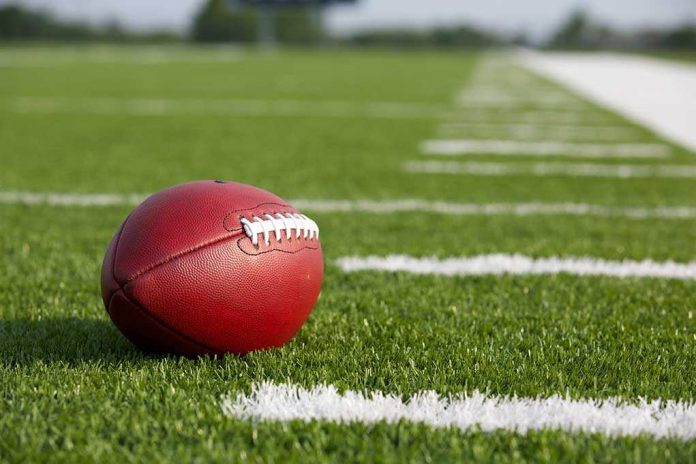
In a twist that highlights the clash of tradition versus modern sensibilities, a New York school district is pleading with former President Donald Trump to protect its “Chiefs” mascot from the chopping block.
At a Glance
- New York school district seeks Trump’s support to retain its “Chiefs” mascot.
- Native American groups argue that such mascots perpetuate harmful stereotypes.
- Legislative efforts to ban Native-themed mascots are gaining momentum.
- The issue symbolizes broader cultural and political battles.
A School’s Plea for Tradition
In the small town of Anytown, New York, the local school district is waging a battle to preserve what they see as a cherished tradition—the “Chiefs” mascot. As the tide across the nation turns against the use of Native American symbols in school mascots, this district stands firm, arguing that the mascot represents bravery, strength, and a connection to the community’s roots. However, as pressure mounts, they have turned to Donald Trump, hoping his influence can help them fend off the cultural and legislative forces pushing for change.
While some may dismiss this as a small-scale issue, it epitomizes a much larger cultural battle. The district’s appeal to Trump isn’t just about a mascot; it’s a call to arms for those who feel their traditions and rights are being eroded by what they perceive as an overreaching, politically correct agenda. Trump’s track record of defending conservative values makes him a logical ally for those resisting change.
The Case Against Native-Themed Mascots
Native American advocacy groups have long opposed the use of Native-themed mascots, citing evidence of their harmful psychological effects on Native students. Studies reveal that these mascots contribute to lower self-esteem and increased depression among Native youth. The American Psychological Association and the Society of Indian Psychologists have called for the retirement of such mascots, arguing that they create a racially hostile environment and perpetuate harmful stereotypes.
These groups argue that the portrayal of Native peoples as mascots reduces them to caricatures, stripping away their rich histories and cultures. For them, this isn’t just about mascots—it’s about respect, representation, and the fight against systemic racism. As legislative efforts to ban these mascots gain traction, the stakes are higher than ever.
Trump’s Role in the Culture War
For many conservatives, Trump’s involvement represents a beacon of hope in a world where they feel their voices are increasingly marginalized. His potential intervention is seen as a stand against what they view as an aggressive “cancel culture” that seeks to erase history and tradition. The school district’s appeal to Trump underscores a broader sentiment among his supporters—an unwavering commitment to defending their cultural and political beliefs.
Though Trump has yet to publicly respond, his history suggests he might view this as a fight worth taking up. After all, Trump has consistently championed issues that resonate with his base, from defending Constitutional rights to challenging government overreach. His involvement could amplify the issue to a national stage, rallying support from like-minded individuals across the country.
The Path Forward
As the debate rages on, the school district faces a pivotal decision: hold on to tradition or adapt to the changing cultural landscape. Retaining the “Chiefs” mascot could lead to increased scrutiny, potential legal challenges, and the risk of losing state funding. On the other hand, changing the mascot might align the district with broader trends towards inclusivity, but not without potential backlash from the community.
The outcome of this battle may set a precedent for other schools grappling with similar issues. Will tradition and local identity prevail, or will the forces of change reshape the cultural fabric of America’s educational institutions? As the nation watches, this New York school district finds itself at the crossroads of a critical cultural and political moment.
Sources:
U.S. Commission on Civil Rights report on Native mascots
Study on harmful effects of Native-themed mascots
Report on effects on Native American students
Wikipedia on Native American mascot controversy
APA statement on Indian mascots




